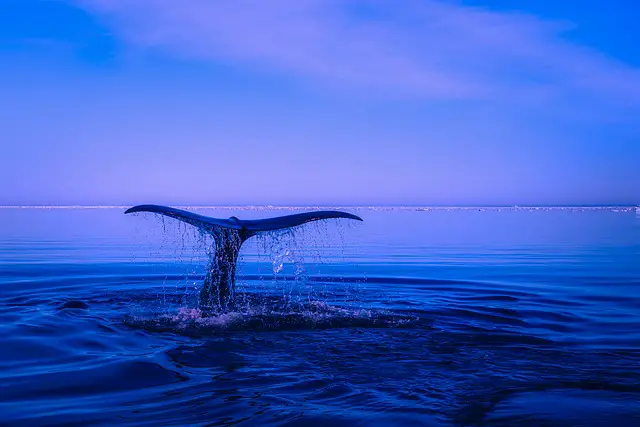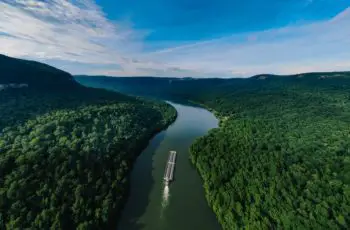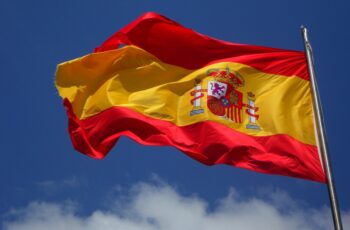The Earth is covered mostly by oceans, vast bodies of water that house unimaginable creatures. Despite this, there is very little we actually know about it. These trivia 41 Oceans Quiz Questions and Answers will teach you about the deep, dark seas.
Oceans Quiz Questions and Answers

1. About what percent of the Earth’s surface is covered in water?
A. 86%
B. 90%
C. 75%
2. How many oceans are there?
A. 5
B. 3
C. 7
3. Which is the largest ocean?
A. Pacific Ocean
B. Atlantic Ocean
C. Indian Ocean
4. Which is the smallest ocean?
A. Arctic Ocean
B. Indian Ocean
C. Southern Ocean
5. Which ocean did the European explorers sail in to get to America?
A. Atlantic Ocean
B. Pacific Ocean
C. Indian Ocean
6. The Mid-Atlantic Ridge is…
A. a mountain range
B. a trench
C. a tectonic plate
7. How many known species are thought to live in the Earth’s oceans?
A. 230,000
B. 1,980,000
C. 500,000
8. What is the total combined volume of all of Earth’s oceans?
A. 1,330,000,000 cubic kilometers
B. 5,000,000 cubic kilometers
C. 280,000,000 cubic kilometers
9. Which two oceans are covered partly in sea ice year-round?
A. Pacific and Indian Ocean
B. Arctic and Southern Ocean
C. Indian and Atlantic Ocean
10. Which of these separates the Arctic Ocean from the Pacific Ocean?
A. Philippine Sea
B. Mid-Atlantic Ridge
C. Bering Strait
11. At which landmass do the Pacific and Atlantic ocean meet?
A. Cape Horn
B. Polynesia
C. Guam
12. The Indian Ocean is bordered by which of these countries?
A. Cuba
B. Germany
C. India
13. What is a superocean?
A. An ocean that borders a supercontinent
B. An ocean that covers at least ⅘ of a planet
C. An extremely deep ocean
14. Pangea, one of Earth’s past supercontinents, was surrounded by the superocean…
A. Mirovia
B. Panthalassa
C. Atlanta-Pacifica Ocean
15. Which is the deepest ocean?
A. Atlantic Ocean
B. Pacific Ocean
C. Indian Ocean
16. The deepest natural oceanic trench in the world is…
A. Mariana Trench
B. Tonga Trench
C. Philippine Trench
17. At which subsystem of Earth is all of its water located?
A. Atmosphere
B. Hydrosphere
C. Lithosphere
19. Why is it so difficult to explore the deepest areas of the ocean?
A. Lack of light
B. Deadly sea creatures
C. The extreme pressures
20. What important chemical compound do all oceans contain?
A. Sodium chloride
B. Hydroxide
C. Hypochlorite
21. From where do the oceans get their salt?
A. Rocks from land
B. Meteorites
C. Sea creatures
22. Aside from H2O, what are some of the main chemicals and compounds found in the Earth’s oceans?
A. Silica, Asbestos, radon and arsenic
B. Lithium, anhydride, toluene, and ethylamine
C. Magnesium, sulfate, calcium, and potassium
23. How many oceans does the equator run through?
A. four
B. three
C. one
24. The Amazon river flows into which ocean?
A. The Atlantic
B. The Pacific
C. The Southern
25. Which early European explorer helped prove the existence of the Southern Ocean?
A. Ferdinand Magellan
B. James Cook
C. Francis Xavier
26. Which property of water does salt NOT change?
A. Salinity
B. State of matter
C. Temperature
27. Which ocean is Hawaii in?
A. The Pacific
B. The Atlantic
C. The Indian
28. Which ocean is to the west of the United Kingdom?
A. The Pacific
B. The Atlantic
C. The Indian
29. About how many islands can be found in the Pacific Ocean?
A. 500
B. 300,000
C. 25,000
30. What are the three categories of marine life?
A. Plankton, nektons, and benthos
B. Quarks, scire, and angiosperms
C. Hyphae, lipids, and prophase
31. What are plankton?
A. Organisms that float on water
B. Organisms that actively swim in water
C. Organisms that live on the seafloor
32. What are nektons?
A. Organisms that float on water
B. Organisms that actively swim in water
C. Organisms that live on the seafloor
33. What are benthos?
A. Organisms that float on water
B. Organisms that actively swim in water
C. Organisms that live on the seafloor
34. Which of these is true about the Earth’s lakes and rivers?
A. Most lakes and rivers are saltwater
B. Lakes and rivers are safe from pollution because of their chemical composition
C. There can be lakes and rivers underneath the oceans
35. What is the interconnected system of Earth’s oceanic waters called?
A. Earth’s Ocean
B. Global Ocean
C. Oceanus
36. Which of these countries have coastlines on BOTH the Atlantic and Pacific oceans?
A. Peru
B. Brazil
C. Nicaragua
37. How does the average depth of the oceans compare to the average elevation of the continents?
A. Oceans are, on average, deeper
B. Continents are, on average, higher
C. About the same
38. Maldives is a country located in which ocean?
A. Indian Ocean
B. Pacific Ocean
C. Atlantic Ocean
39. Which is the largest ocean basin by area and volume?
A. Atlantic
B. Arctic
C. Pacific
40. What is the current record for the highest ocean wake?
A. 10.5 metres
B. 20.5 metres
C. 30.5 metres
41. Which of the following is not an island country in Pacific Ocean?
A. Vanuatu
B. Madagascar
C. Palau
Did you enjoy taking these trivia 37 Oceans Quiz Questions and Answers? If you’re ready for another one, click here or have a look at this famous landmarks trivia quiz.



nicole zanderzuk
very informative
Rowley Jefferson
Good
Lindell Gore
i learned a lot
Lindell Gore
there were many of these answers i did not know and was very fascinated to find out
helen reardigan malone
Enjoyed quiz but would have liked my results.
Barbara
I liked.
Dorian
It was very informative, and to make it even better, there are errors in the following questions that could be addressed:
17,21,24,31
some are minor spelling, and one that does not allow the answer to be displayed
Jacqueline
I’ve suprised myself , as I was able to answer most of these questions.
Aludra
For me when I click the answer it doesn’t work. ????
Eleanor
good some confusing!!!!!!!!